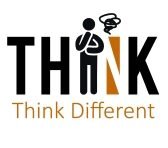In business, it is critical to retain information about the market, and apply the knowledge of your team to get the best results and a competitive advantage. Within a business, there is a lot of information and knowledge gathered by individuals with different responsibilities. One cannot expect to have a firm grasp of every single piece of information regarding the organization.
This is where information and knowledge management comes into the picture for your business. Managers have plenty of data pass through their hands almost every day. If this information is not properly managed, the organisation cannot use it to convert it into subsequent organisation knowledge.
Wondering why information and knowledge management is important for your business? Have a quick look at nine reasons below:
- All the information is stored in a (central) repository and managed in such a way that it can be used, reused and edited, whenever the need arises – based on additional experience and knowledge.
- If you wish to boost your decision making abilities, you need to ensure that the information and knowledge systems of your business are systematically managed and maintained.
- Every organization or business needs to focus on ‘learning.’ When the information and knowledge is properly maintained, learning becomes easier for all the people within the company.
- When a business manages it’s information and knowledge in a proper way, it enables it focus on the target audience with better clarity, with a deeper understanding of your customer.
- To effect change management in the organization, it is important to benchmark against previous (key) indicators of the business, which requires established information and knowledge systems. Well-managed information and knowledge allows an organization to adopt change.
- To enable faster decision making, all the information needs to be maintained and managed properly for ease of reference and analysis for data-driven decision making.
- Well established information and knowledge management systems shorten the learning curve for new recruits, and the organisation as a whole – there is available reference for consequences of previous decisions and actions.
- Standardization of indicators, achievements, and other organisation performance attributes is possible only when information is managed.
- Managed knowledge can be used by the business to improve customer experience.


